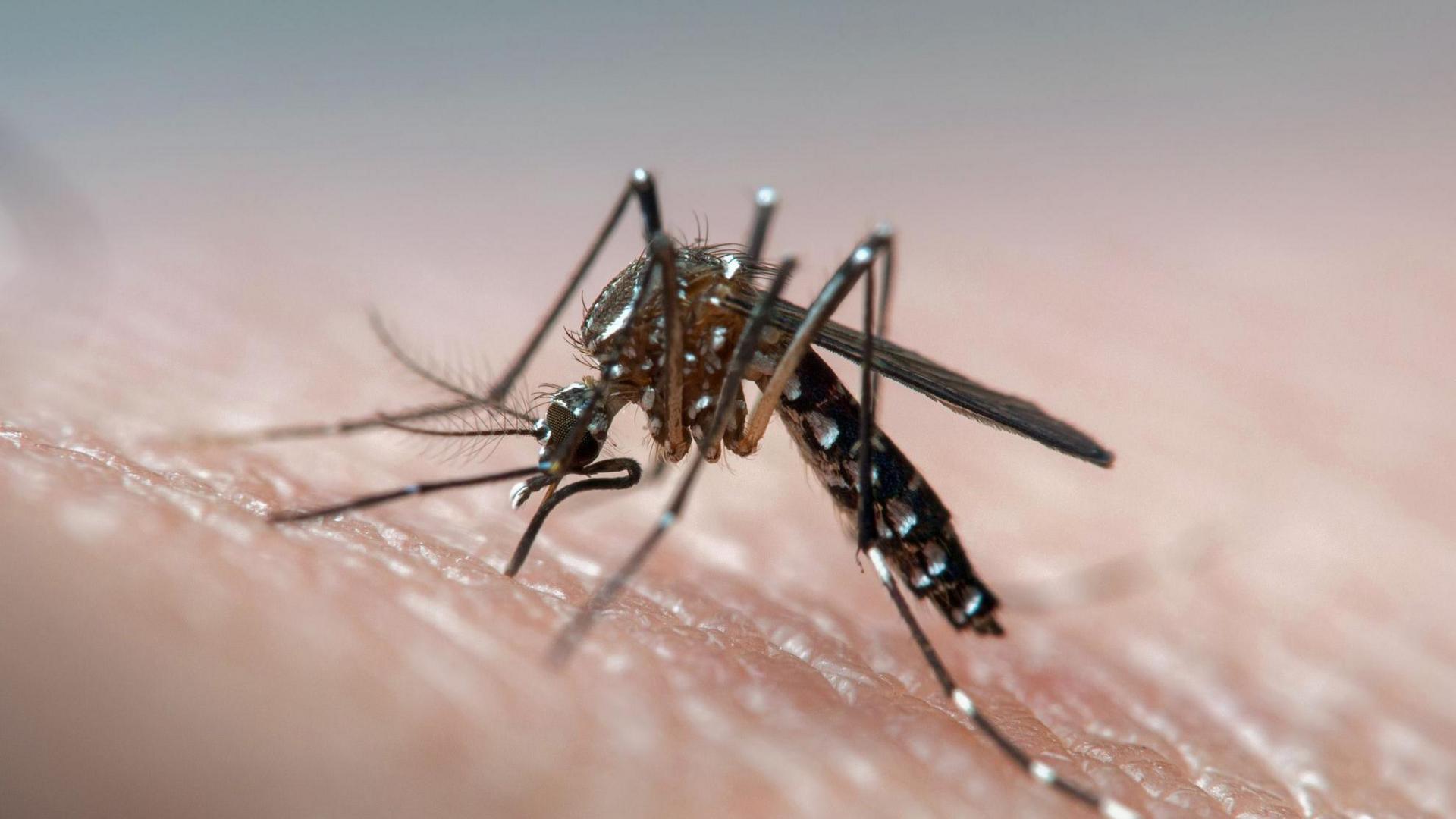Novel way to beat dengue: Deaf mosquitoes stop having sex

- Published
Scientists believe they have found a quirky way to fight mosquito-spread diseases such as dengue, yellow fever and Zika, after showing that deaf male insects struggle to mate and breed.
Mosquitoes have sex while flying in mid-air and the males rely on hearing to chase down a female, based on her attractive wingbeats.
The researchers did an experiment, altering a genetic pathway that male mosquitoes use for this hearing. The result - they made no physical contact with females, even after three days in the same cage.
Female mosquitoes are the ones that spread diseases to people, and so trying to prevent them having babies would help reduce overall numbers.
The team from the University of California, Santa Barbara, studied Aedes aegypti mosquitoes, which spread viruses to around 400 million people a year.
They closely observed the insects' aerial mating habits - that can last between a few seconds and just under a minute - and then figured out how to disrupt it using genetics.
They targeted a protein called trpVa that appears to be essential for hearing.
In the mutated mosquitoes, neurons normally involved in detecting sound showed no response to the flight tones or wingbeats of potential mates.
The alluring noise fell on deaf ears.
In contrast, wild (non-mutant) males were quick to copulate, repeatedly, and fertilised nearly all the females in their cage.
The researchers from the University of California, Santa Barbara, who have published their work in the journal PNAS, external, said the effect of the gene knock-out was "absolute", as mating by deaf males was entirely eliminated.
Dr Joerg Albert, from the University of Oldenburg in Germany, an expert on mosquito mating, said attacking sense of sound was a promising route for mosquito control, but it needed to be studied and managed.
"The study provides a first direct molecular test, which suggests that hearing is indeed not only important for mosquito reproduction but essential.
"Without the ability of males to hear - and acoustically chase - female mosquitoes might become extinct."
Another method being explored is releasing sterile males in areas where there are pockets of mosquito-spread diseases, he added.
The mosquito researchers in California say it might be possible to manipulate trypVa to instead give sterile males even better hearing for female wingbeats so they can outcompete wild males for a mate - thus reducing the chances of reproduction. That work has not yet been done though.
Although mosquitoes can carry diseases, they are an important part of the food chain - as nourishment for fish, birds, bats and frogs, for example - and some are important pollinators.